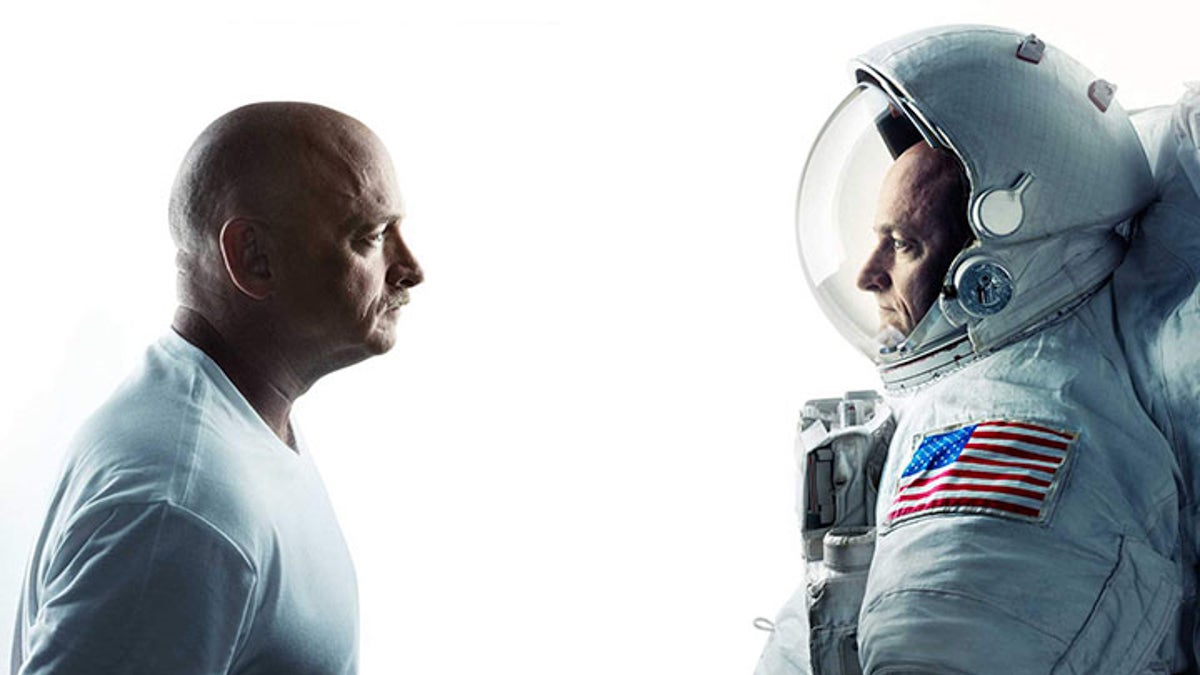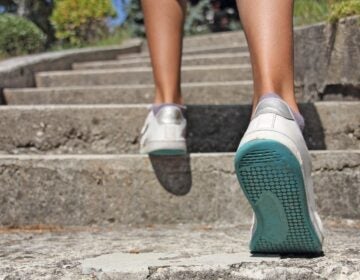Double the data: studying space’s impact on identical twins
Listen 5:10 Photo via NASA) " title="kellytwins" width="1" height="1"/>
Photo via NASA) " title="kellytwins" width="1" height="1"/>
Mark Kelly, left, and his identical twin brother Scott Kelly, right. (Photo via NASA)
Astronauts often become lab rats of sorts – scientists have an intense interest in studying how space affects their bodies and minds. So, a chance to study identical twins who are also astronauts is basically winning the research lottery.
When astronaut Scott Kelly was assigned to a year-long mission aboard the International Space Station, scientists wanted to study him compared to his brother, Mark Kelly, who was staying on Earth.
“When we are in space…we actually tend to talk more than when we’re on Earth, especially when he’s in space for a year,” Mark Kelly said with a laugh.
Twelve universities are involved in NASA’s twins study, conducting 10 different research projects.
“One of them, for example, had to do with the length of our telomeres, which is a structure on our DNA,” Mark Kelly explained, “And the length of your telomeres is indicative of how old you are. And the theory is that Scott’s telomeres would shorten while he was in space because of the stress and zero gravity and just basic stress of living there for a long period of time.”
But instead of getting shorter, Scott’s telomeres got longer, meaning he actually aged slower in space than his brother on Earth.
Aditionally, thanks to general relativity and the fact that Scott spent more time in space, Mark used to be six minutes older than Scott, and now he’s six minutes and 13 milliseconds older.
Scientists are also studying the twins’ behavioral health, their microbiomes, and their bone density. Mark Kelly said that he expects more results from the twin study to come out over the next few months.
To hear more from Mark Kelly, listen to the interview above.
WHYY is your source for fact-based, in-depth journalism and information. As a nonprofit organization, we rely on financial support from readers like you. Please give today.







